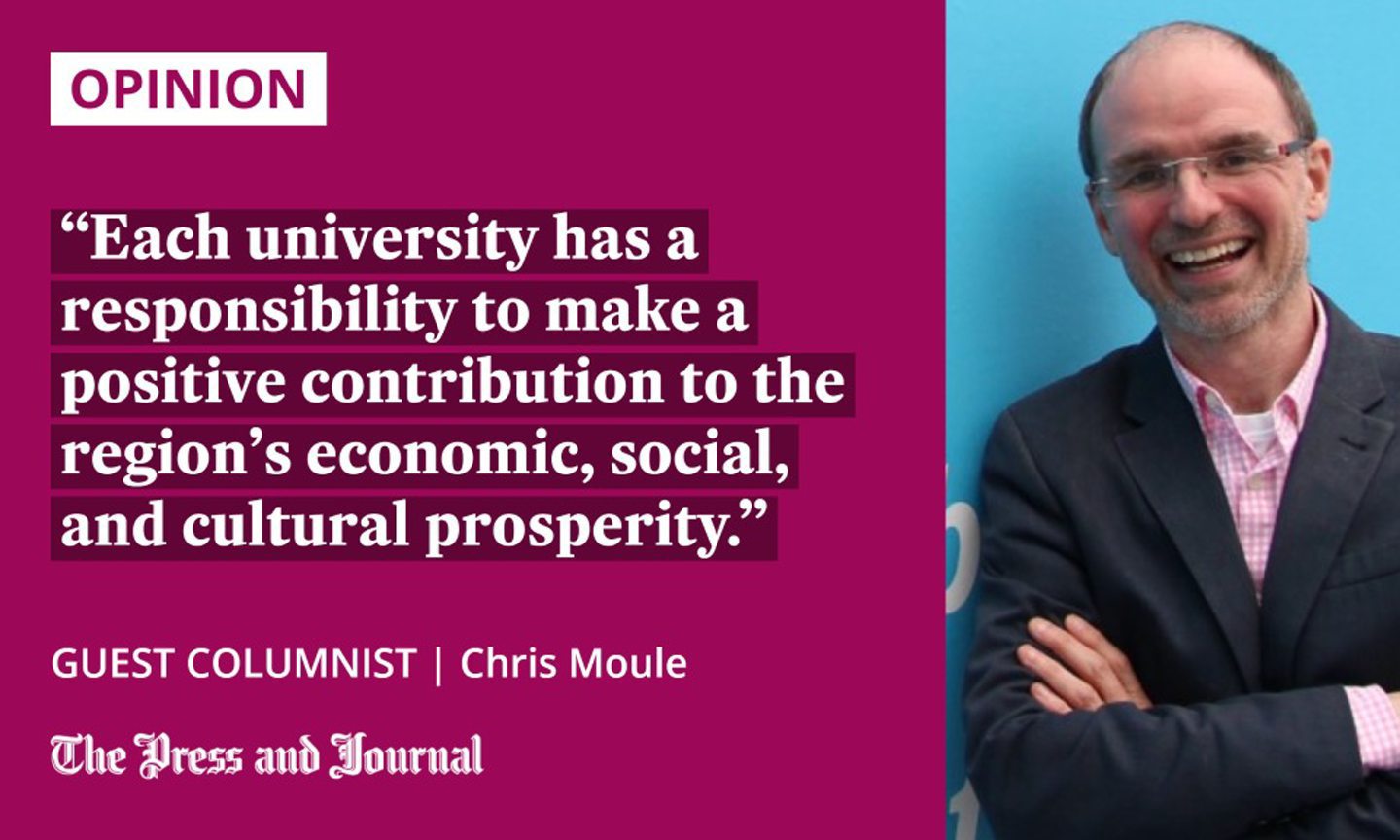Entrepreneurship is absolutely key for Scotland’s future, which means it has to be a focus for our country’s universities, writes Chris Moule of RGU.
Simon Sinek’s book, Start With Why, explains the framework that organisations need to consider to move beyond knowing what they do and how they do it in order to get to the why – specifically why they exist and why they matter.
Against a backdrop of fiscal pressure, Brexit, and Covid recovery, entrepreneurship is a key pillar in the Scottish Government’s National Strategy for Economic Transformation.
Universities now need to double down on providing the necessary space in their strategies, budgets, and workload, while investing in the people and resources to drive them forward. They also need to be expansive and inclusive in reach and depth when delivering entrepreneurial initiatives, and develop pedagogy that produces enterprising graduates.

At Robert Gordon University (RGU), we continue to embed a culture of creativity and curiosity on campus and across the north-east, having successfully delivered four start-up programmes, creating 96 businesses. The most recent was a regional accelerator for 36 teams, in partnership with Opportunity North East, and funded by the Scottish Government’s North East Economic Recovery and Skills Fund.
Our Women in Business and RGU Sustainable Futures programmes, in partnership with Aberdeenshire Council, support budding innovators and small and medium-sized enterprises across the region, helping them to be sustainable, resilient and forward-thinking.
Universities can make a major impact in three significant ways
Working with stakeholders across their ecosystem, each university has a responsibility to make a positive contribution to the region’s economic, social, and cultural prosperity. In Aberdeen, as we navigate the energy transition journey and diversify into areas like life science and adventure tourism, new thinking, new ventures and entrepreneurial mindsets will be vital.
Entrepreneurial graduates create new ventures, products and markets that present employment opportunities
It’s with this mindset that universities across Scotland and the world can make a major impact in three significant ways. Firstly, entrepreneurial universities provide graduates that are equipped with a growth mindset in order to deal with a complex world, and help them cope with change, adversity, and uncertainty.
At RGU we deliver an “Innovation Award” – a microcredential across all subjects that seeks to evidence the entrepreneurial and innovation skills and mindsets that employers value.
We become leaders the day we decide to help people grow, not numbers.
— Simon Sinek (@simonsinek) December 26, 2022
Secondly, entrepreneurial universities also address industry problems and provide extensive opportunities for innovation through university spins-outs, Help to Grow: Management, upskilling, licensing intellectual property, Knowledge Transfer Partnerships, contract research, consultancy and much more.
And, thirdly, entrepreneurial graduates create new ventures, products and markets that present employment opportunities, and competitive environments which boost productivity, as efficiency and effectiveness are raised to compete.
The ongoing commitment of universities to provide the right skills, conditions and partnerships which foster the emergence of entrepreneurial talent and innovative mindsets is paramount. This has a hugely positive impact on our economy and society. And that, ultimately, is the why.
Chris Moule is head of entrepreneurship and innovation at Robert Gordon University

Conversation